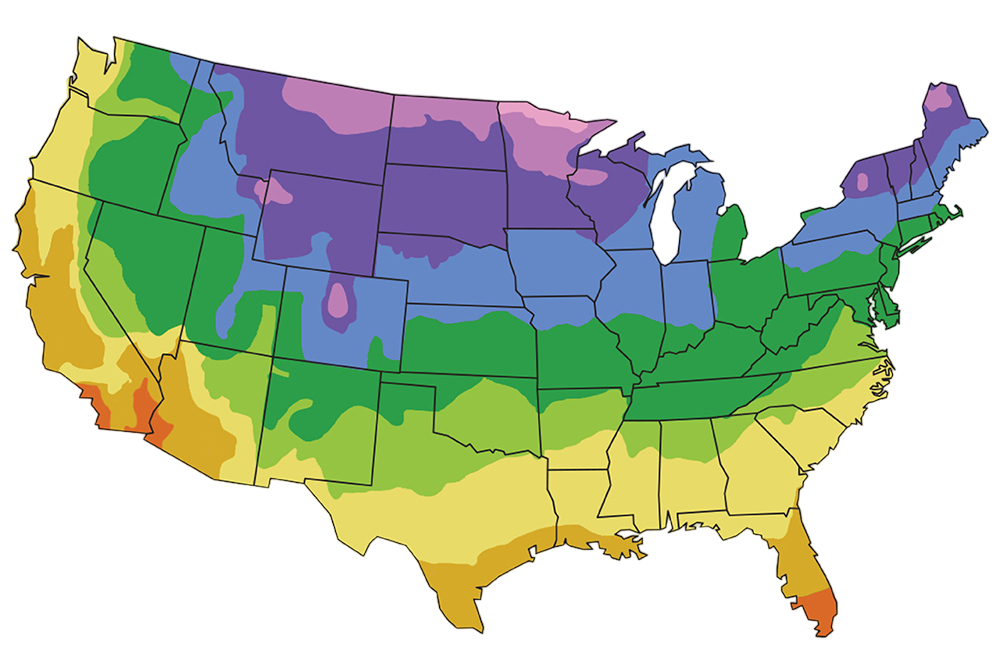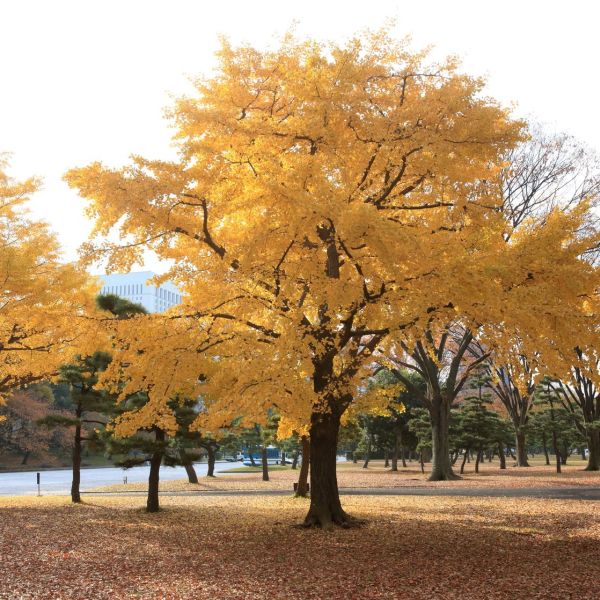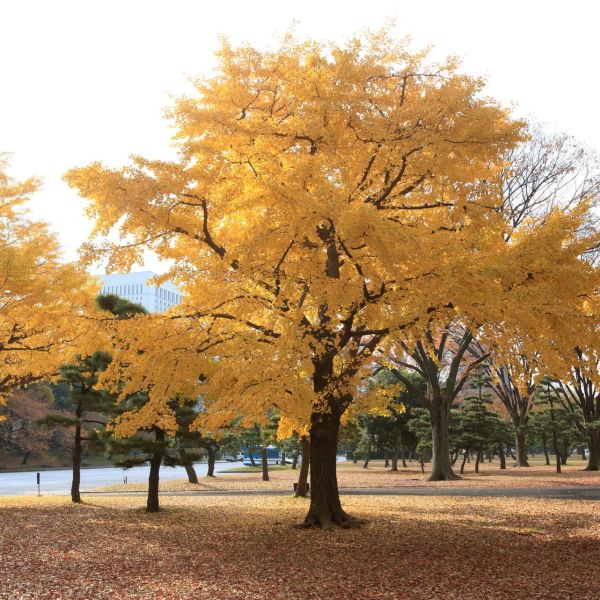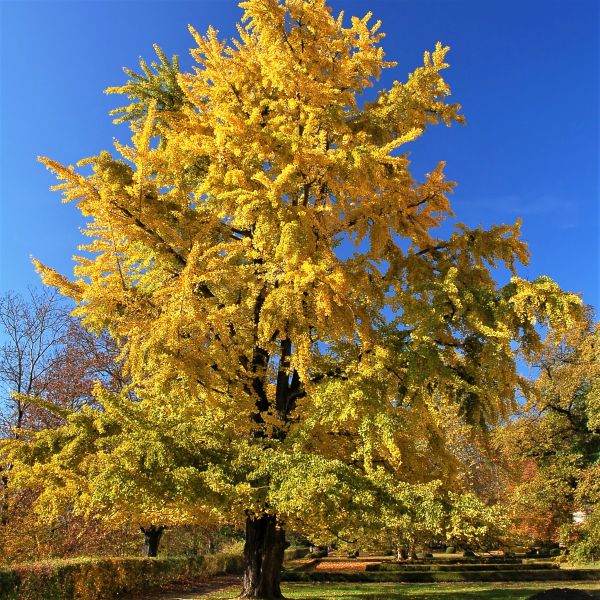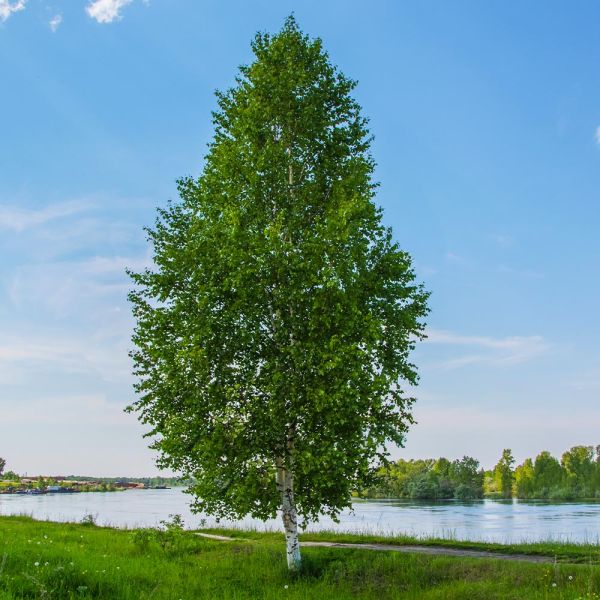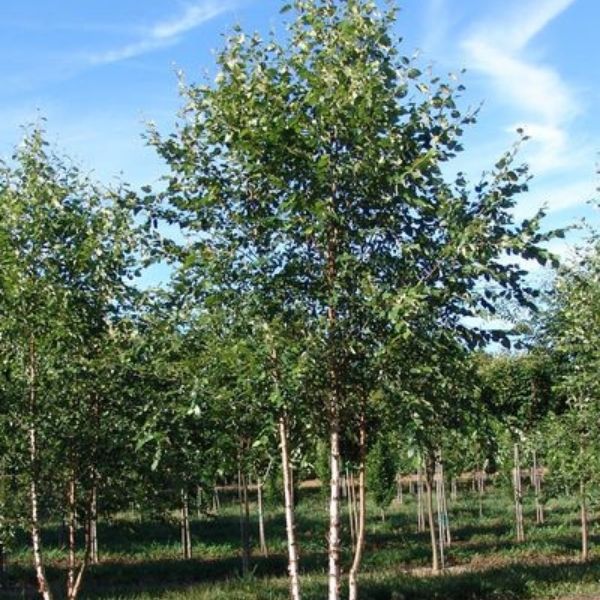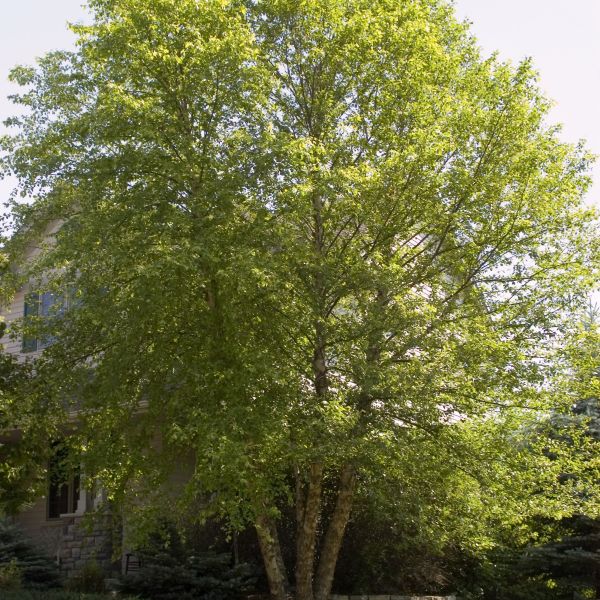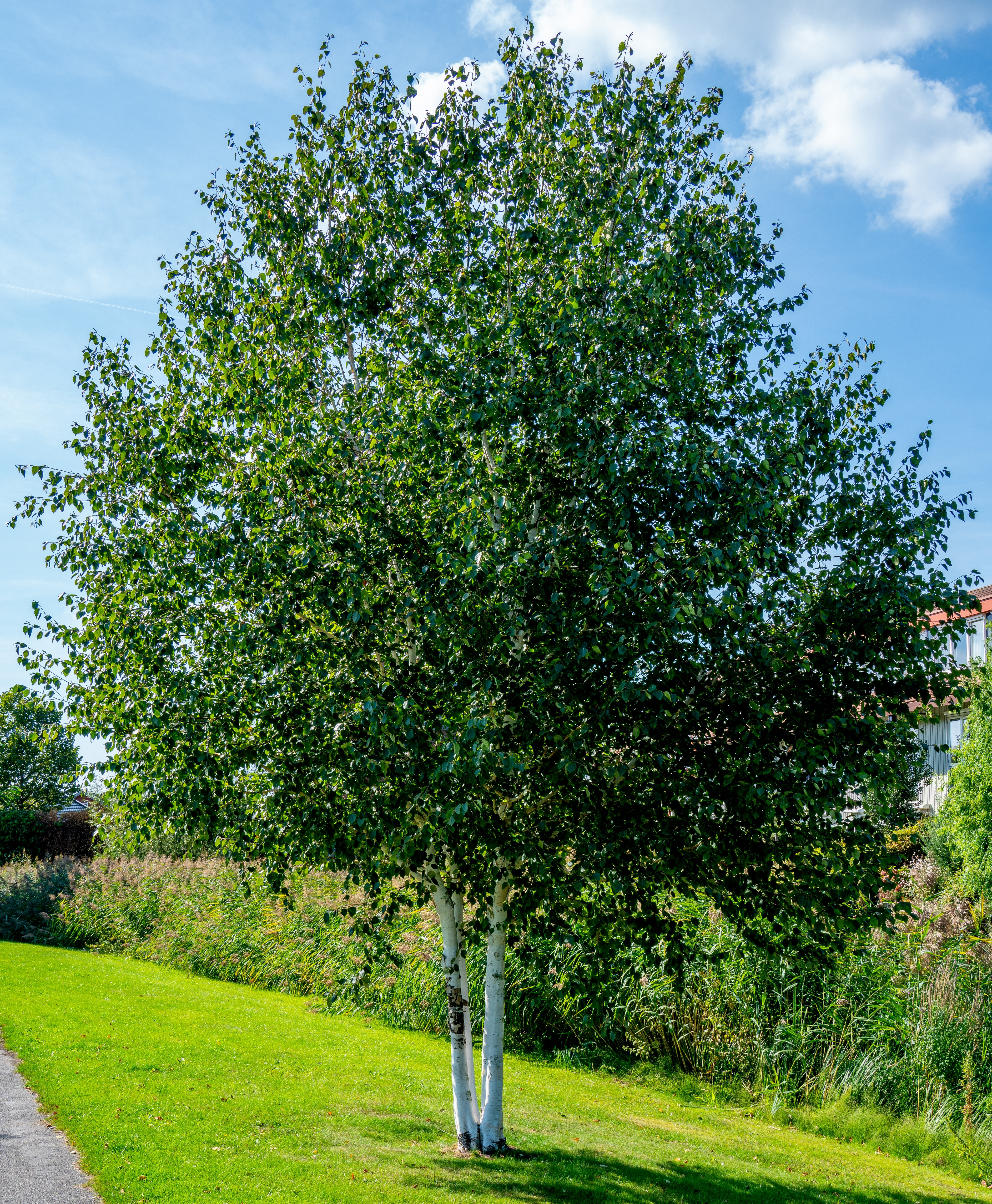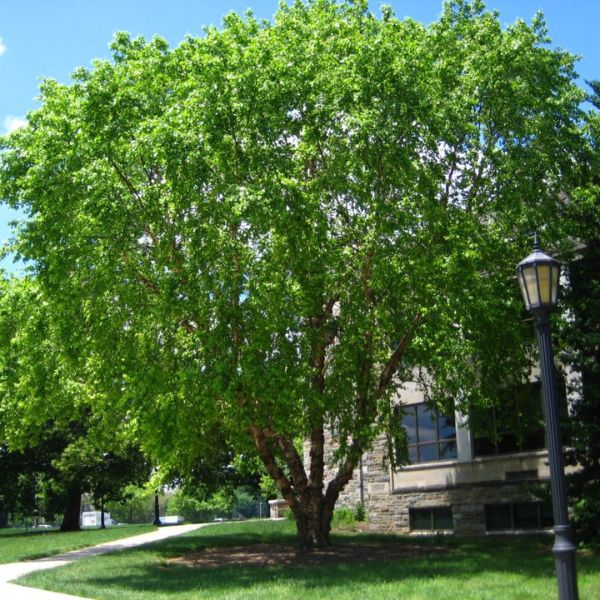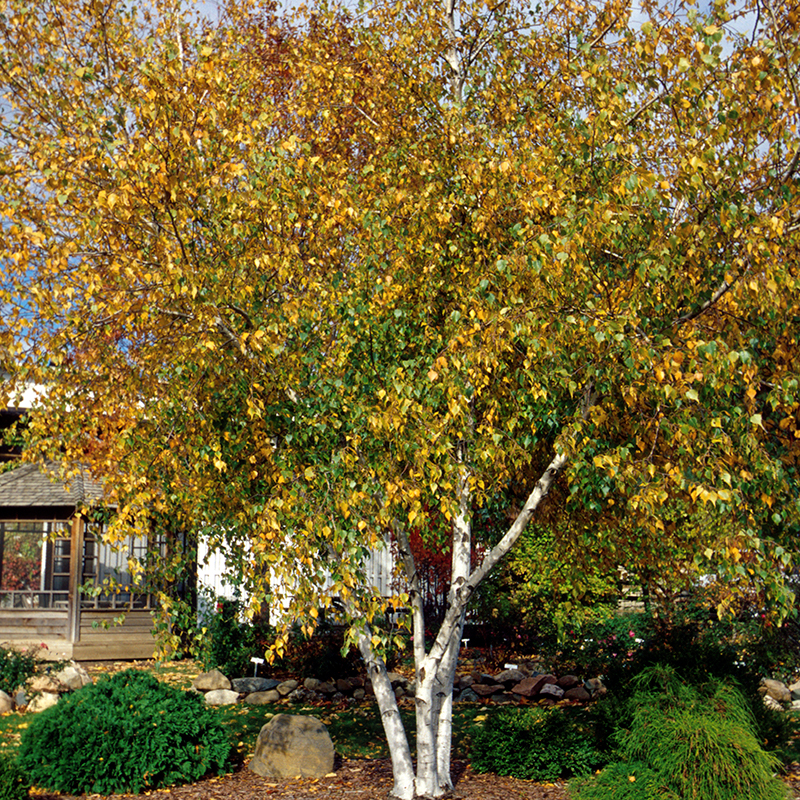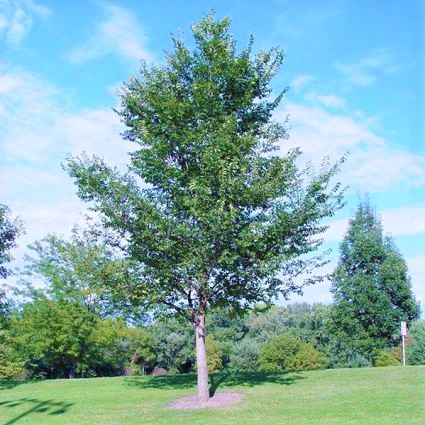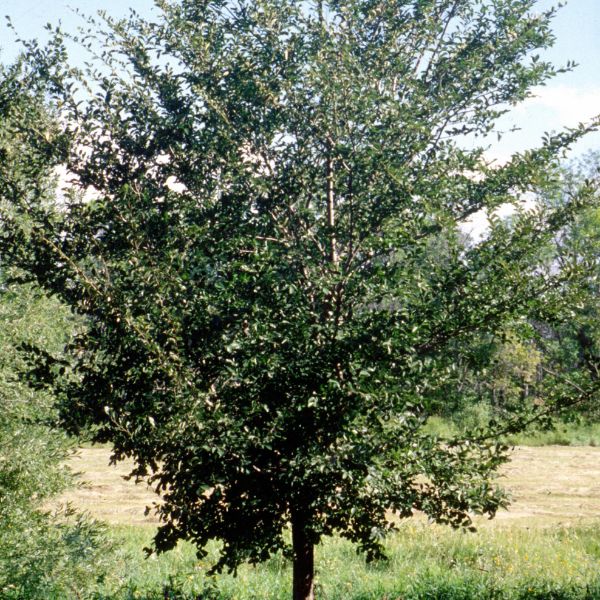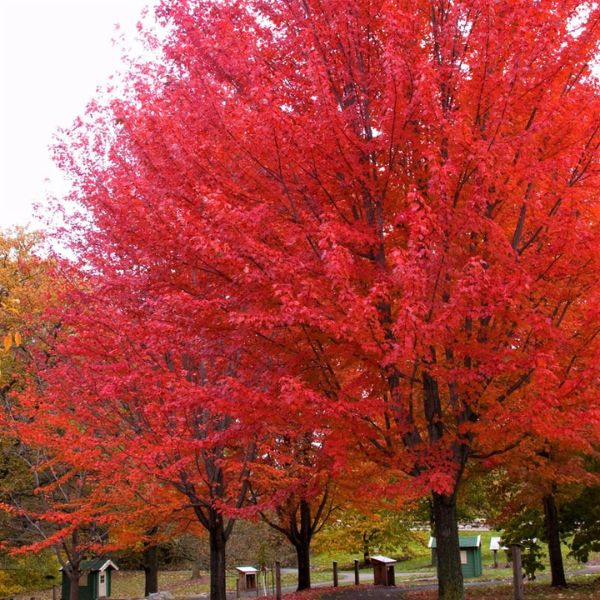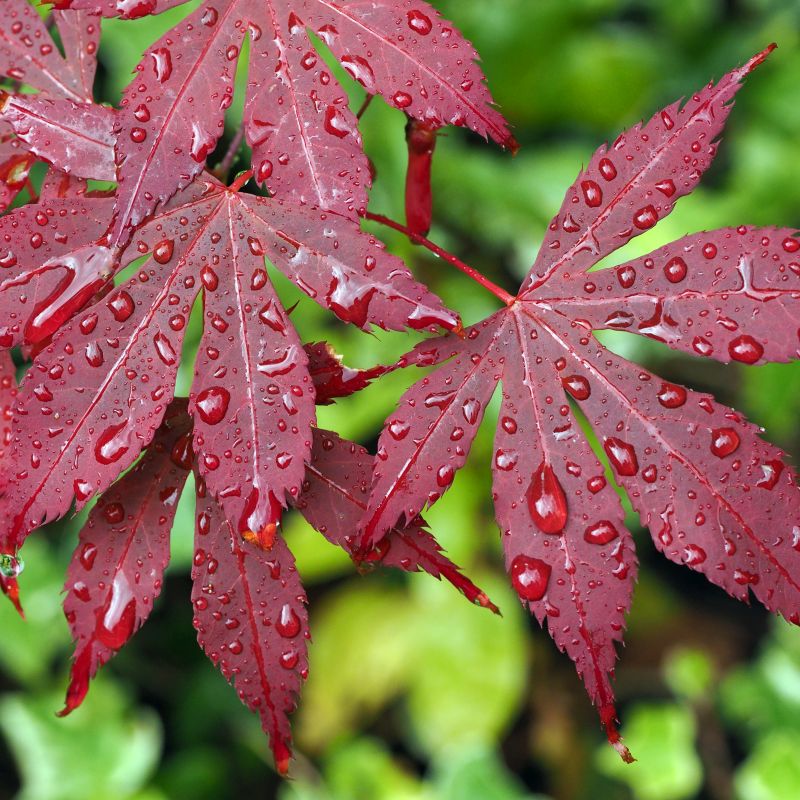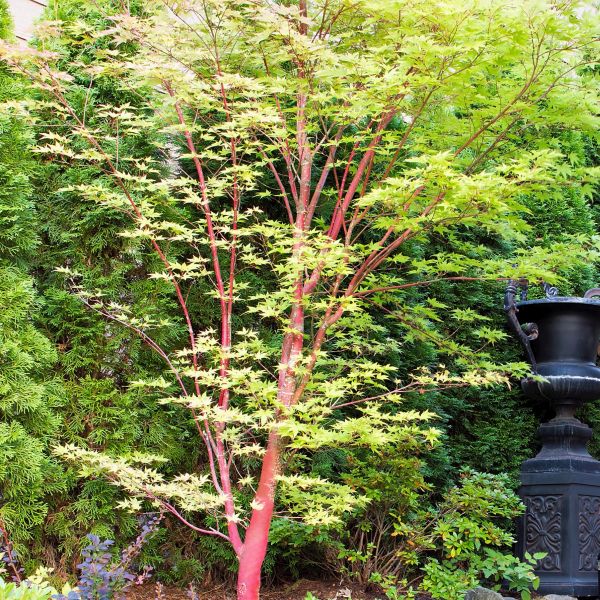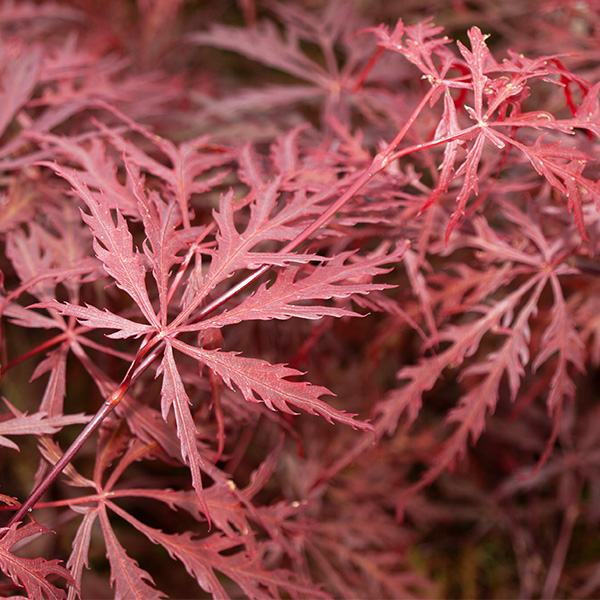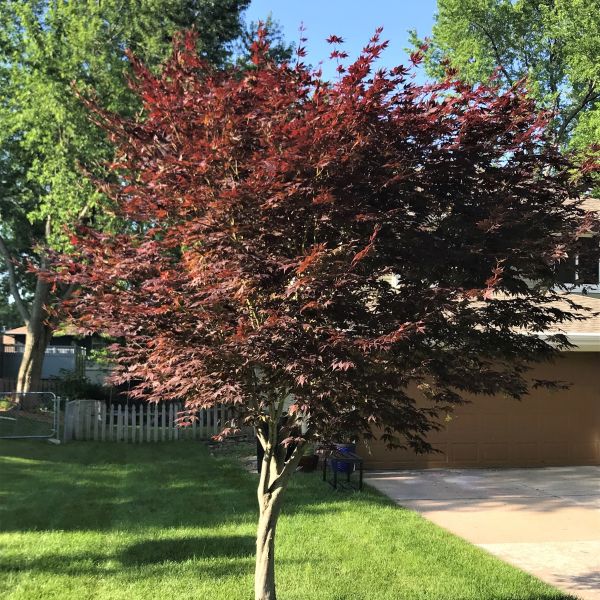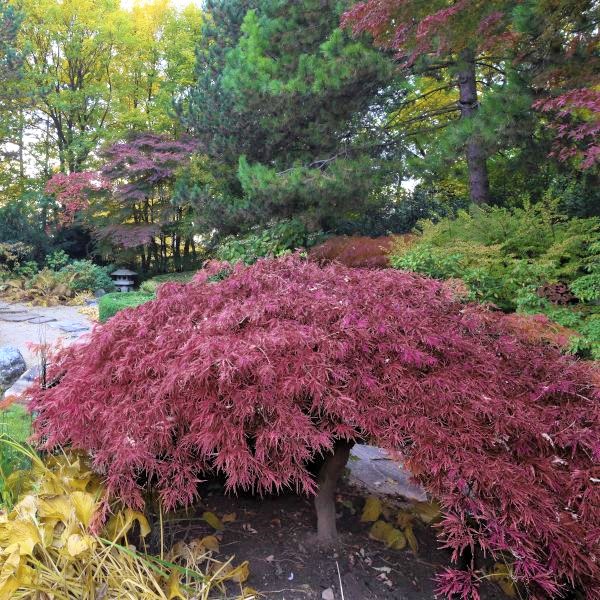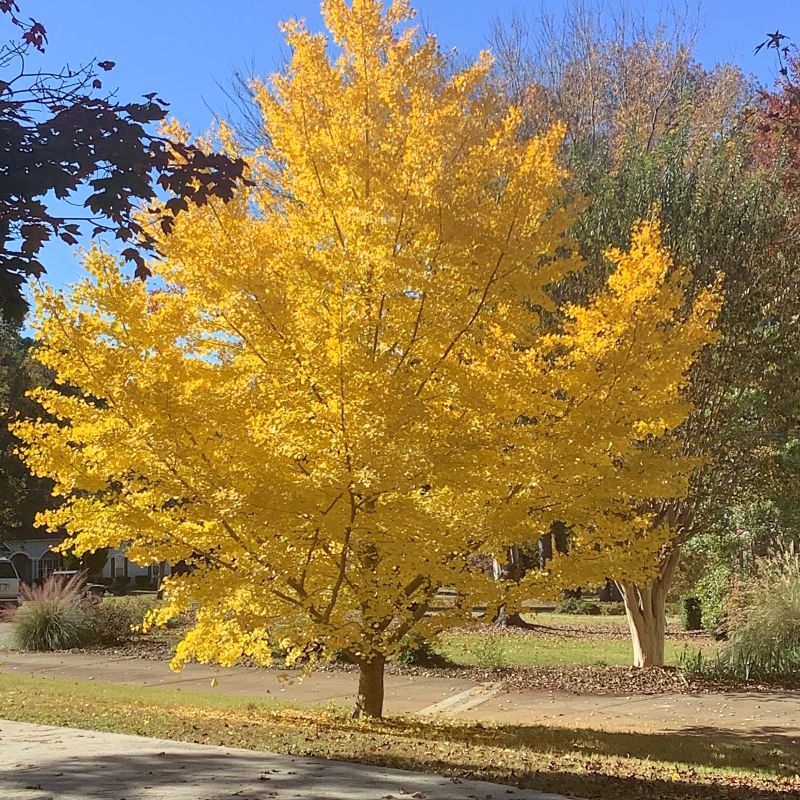
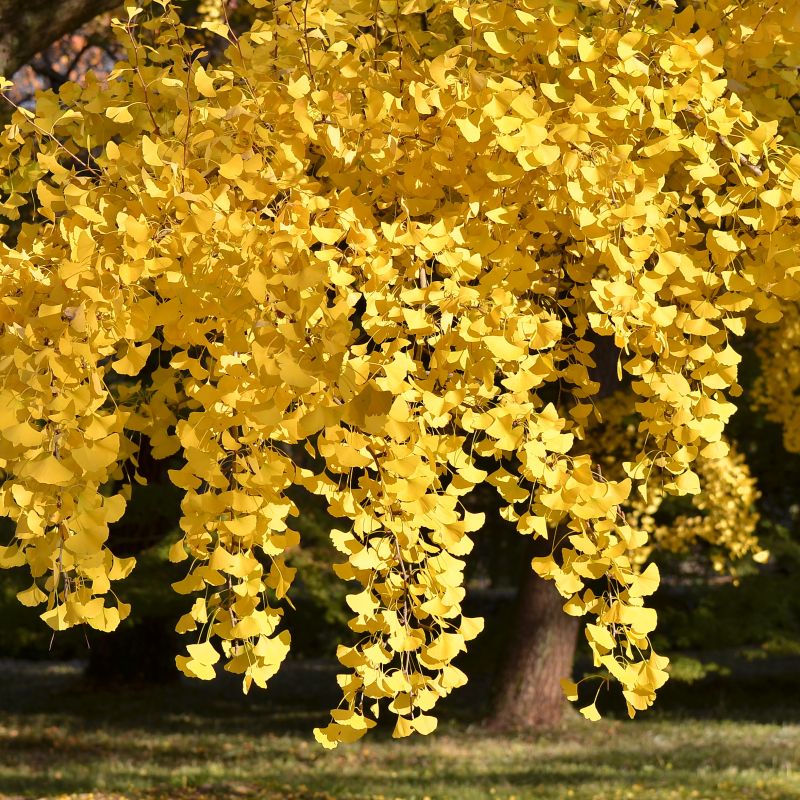
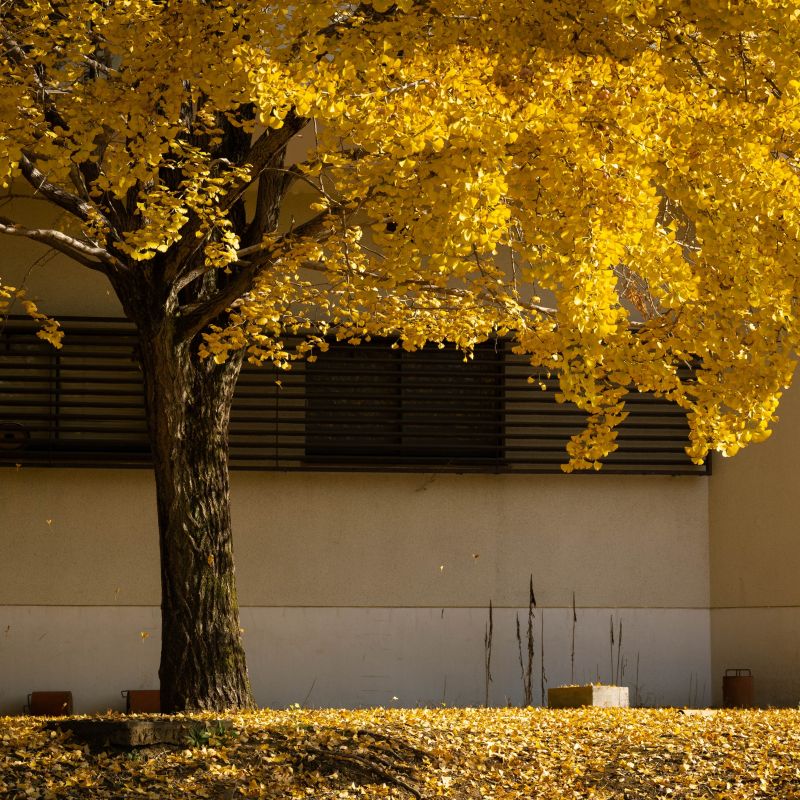
Autumn Gold Ginkgo
Ginkgo biloba 'Autumn Gold'
10 reviews
Autumn Gold Ginkgo
Ginkgo biloba 'Autumn Gold'
10 reviews
- Beautiful golden-yellow fall foliage
- Tolerates urban pollution and adverse soil conditions
- Low maintenance and easy to grow
- Recommended by landscape designers for optimal fit in real yards
$84.00
$121.00
30% Off
- Ships to 43215 in 3 to 7 days
- Free Shipping Over $150
- Plant Arrival Guarantee
- In Stock
- Free Plant Consult
$200 - Landscape-Approved: Every Plant We Sell Comes With Design Expertise Behind It
1.5 Gallon 3-4 Feet
Not just beautiful - intentionally selected by ShrubHub's 3D landscape design team to fit real-world spaces and maximize yard potential.
Why Autumn Gold Ginkgo?
Autumn Gold Ginkgo is a stunning deciduous tree known for its vibrant golden-yellow foliage in the fall. This cultivar is a compact and slow-growing variety, making it ideal for small gardens or urban environments. The fan-shaped leaves turn a brilliant gold color in autumn, creating a striking contrast against the dark green summer foliage. Autumn Gold Ginkgo is a low-maintenance and hardy tree.
People who loved this plant also bought
Sunlight
Autumn Gold Ginkgo trees prefer full sun to partial shade. They can tolerate a wide range of sunlight conditions but thrive best in full sun. Adequate sunlight is important for the tree's growth, leaf coloration, and overall health.
Watering
Autumn Gold Ginkgo trees prefer to be watered deeply and infrequently, allowing the soil to dry out slightly between waterings. They are drought-tolerant once established and will only require supplemental watering during prolonged periods of dry weather.
Fertilizing
Autumn Gold Ginkgo trees require a well-balanced fertilizer that is rich in nitrogen, phosphorus, and potassium. A slow-release fertilizer formulated for trees and shrubs can be applied in early spring and again in late summer to ensure optimal growth and
Autumn Gold Ginkgo (Ginkgo biloba 'Autumn Gold')
The Autumn Gold Ginkgo, scientifically known as Ginkgo biloba 'Autumn Gold', is a stunning deciduous tree that boasts beautiful golden yellow foliage in the fall. This unique tree is a cultivar of the iconic Ginkgo biloba tree, known for its distinctive fan-shaped leaves. The Autumn Gold variety is prized for its vibrant autumn color, which truly stands out in any landscape.
These trees typically grow to be medium to large in size, reaching heights of 40-50 feet and widths of 25-35 feet. The leaves of the Autumn Gold Ginkgo are a bright green color in the spring and summer, transitioning to a brilliant shade of gold in the fall before dropping to reveal a striking silhouette in the winter.
In addition to its ornamental value, the Ginkgo biloba tree is also known for its resilience and longevity. They are low-maintenance, pest-resistant, and can adapt to various soil types and environmental conditions. The Autumn Gold variety is no exception, making it an excellent choice for landscapers and homeowners looking to add a pop of color to their outdoor spaces.
Whether planted as a specimen tree in a garden or used to line streets and sidewalks, the Autumn Gold Ginkgo is sure to make a bold statement with its stunning fall foliage and unique charm.
Plant Information:
| Botanical Name: | Ginkgo biloba 'Autumn Gold' |
| USDA Zones: | 3 - 8 |
| Water: | Low to Moderate |
| Exposure: | Full Sun |
| Soil Needs: | Widely Adaptable |
| Mature Height: | 40 - 50 feet |
| Mature Spread: | 25 - 30 feet |
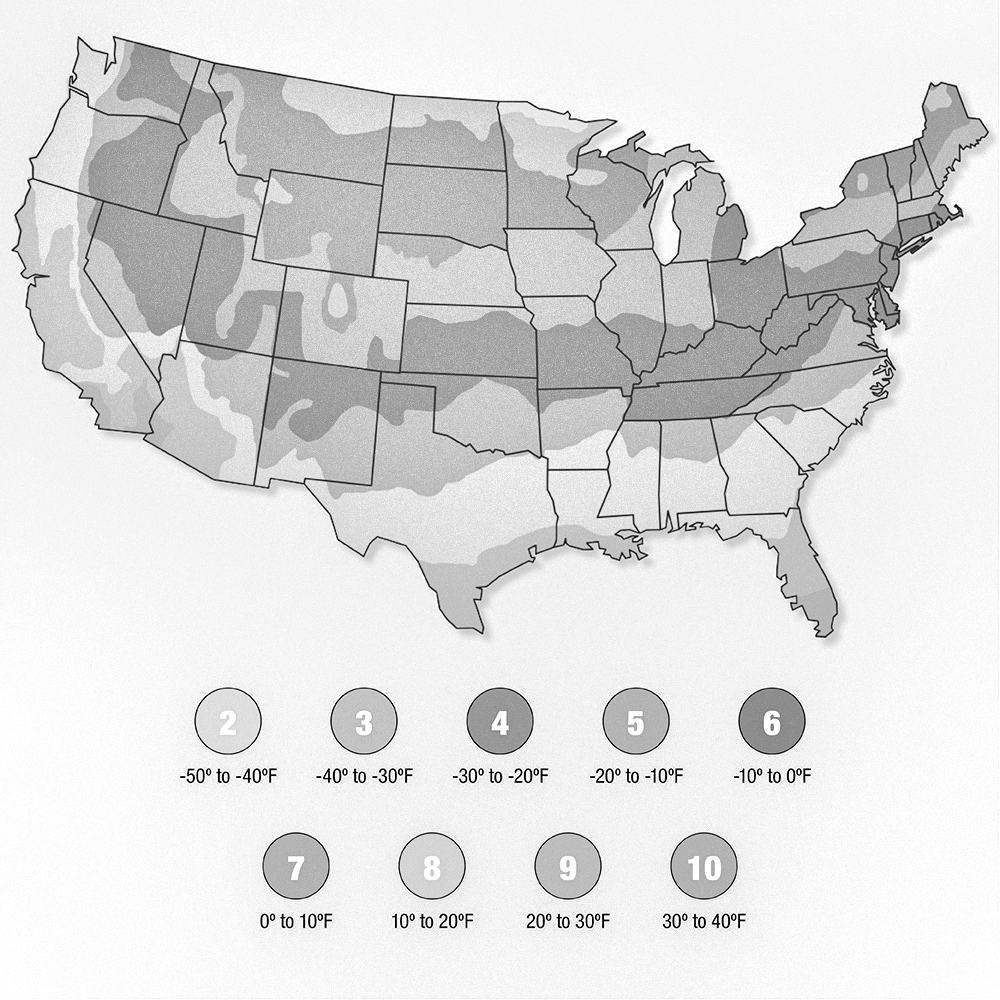

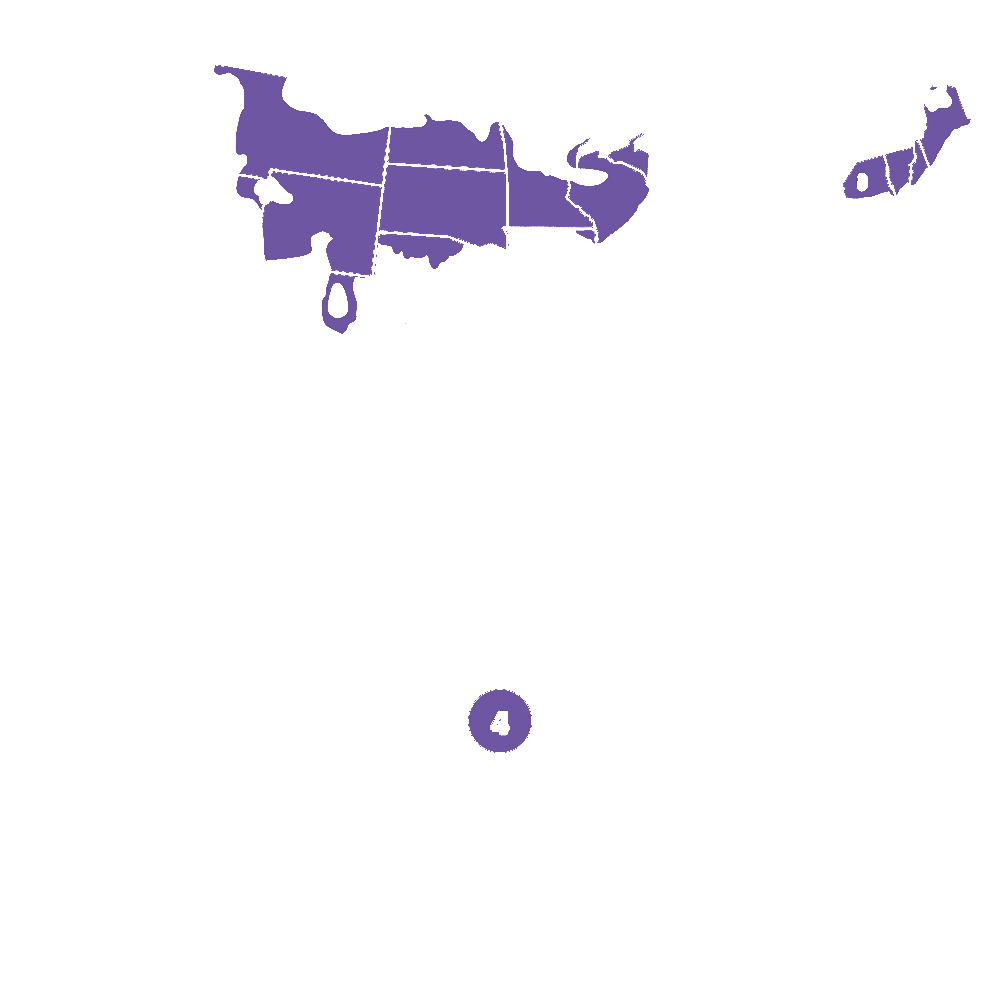
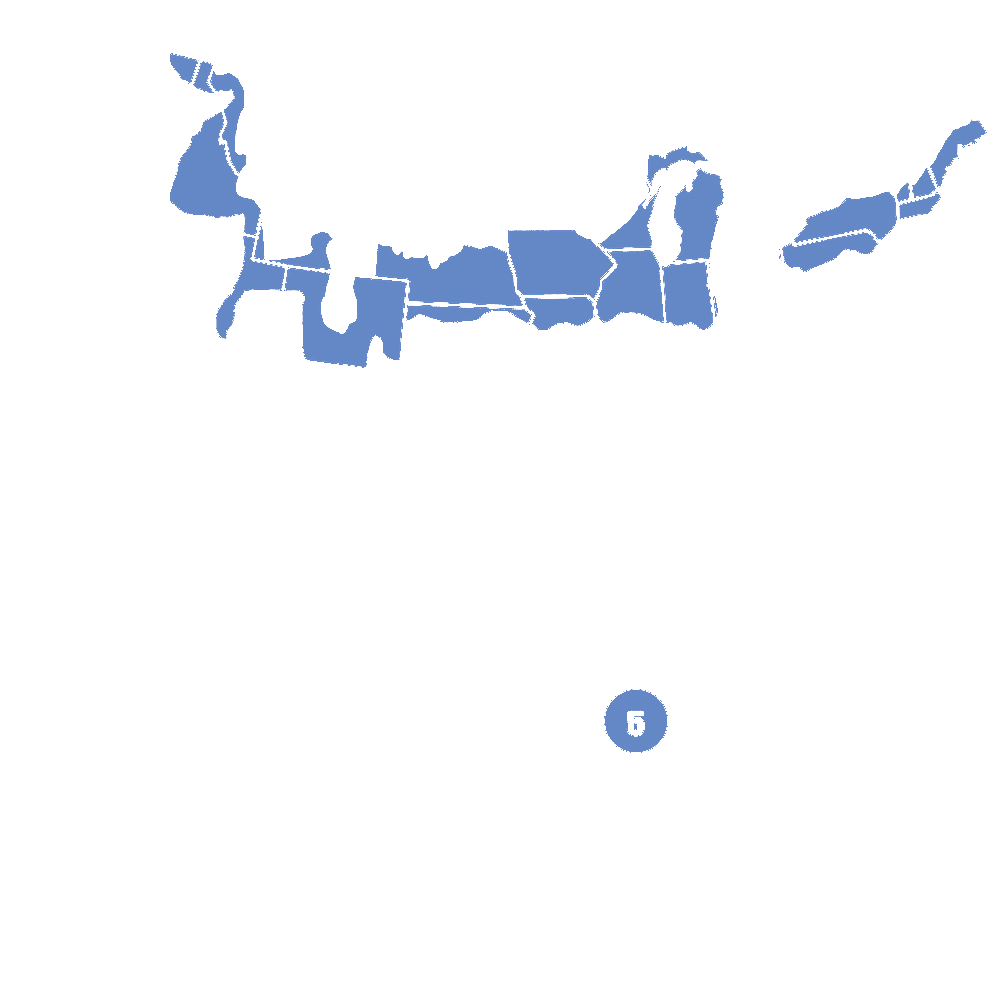
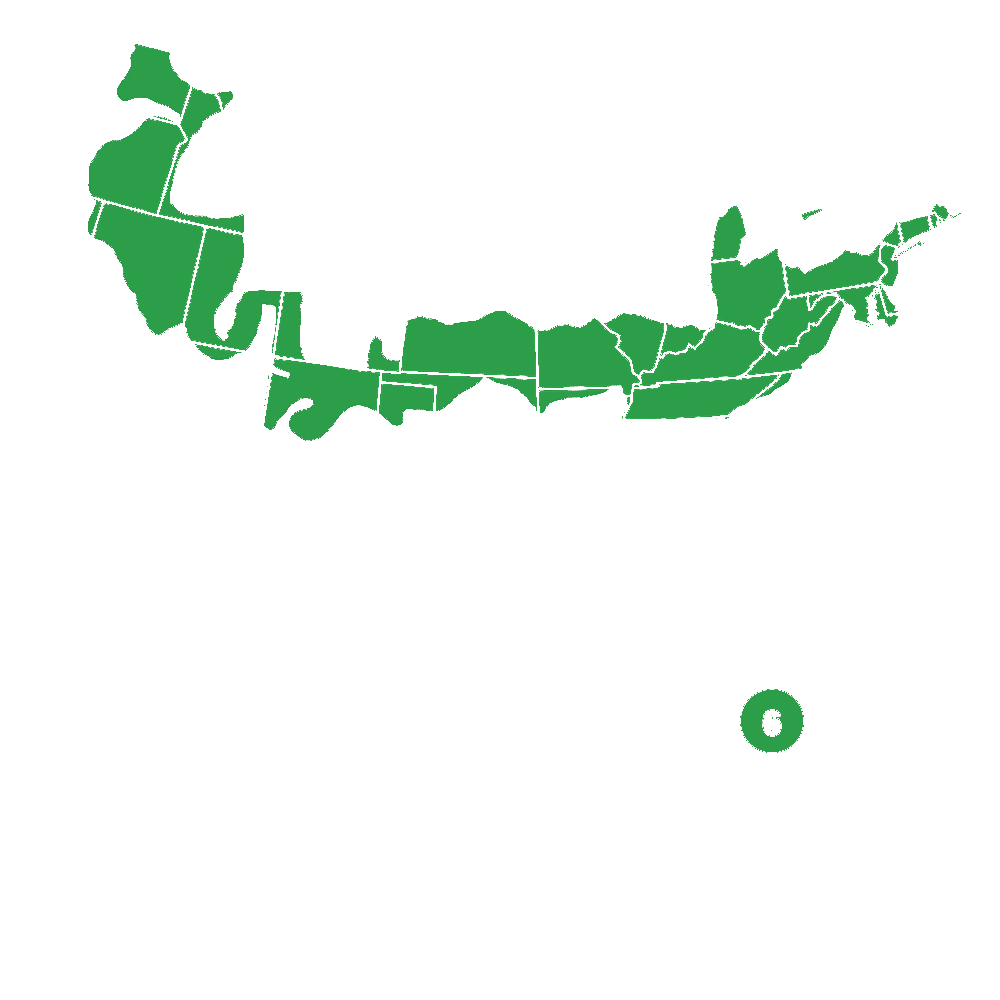

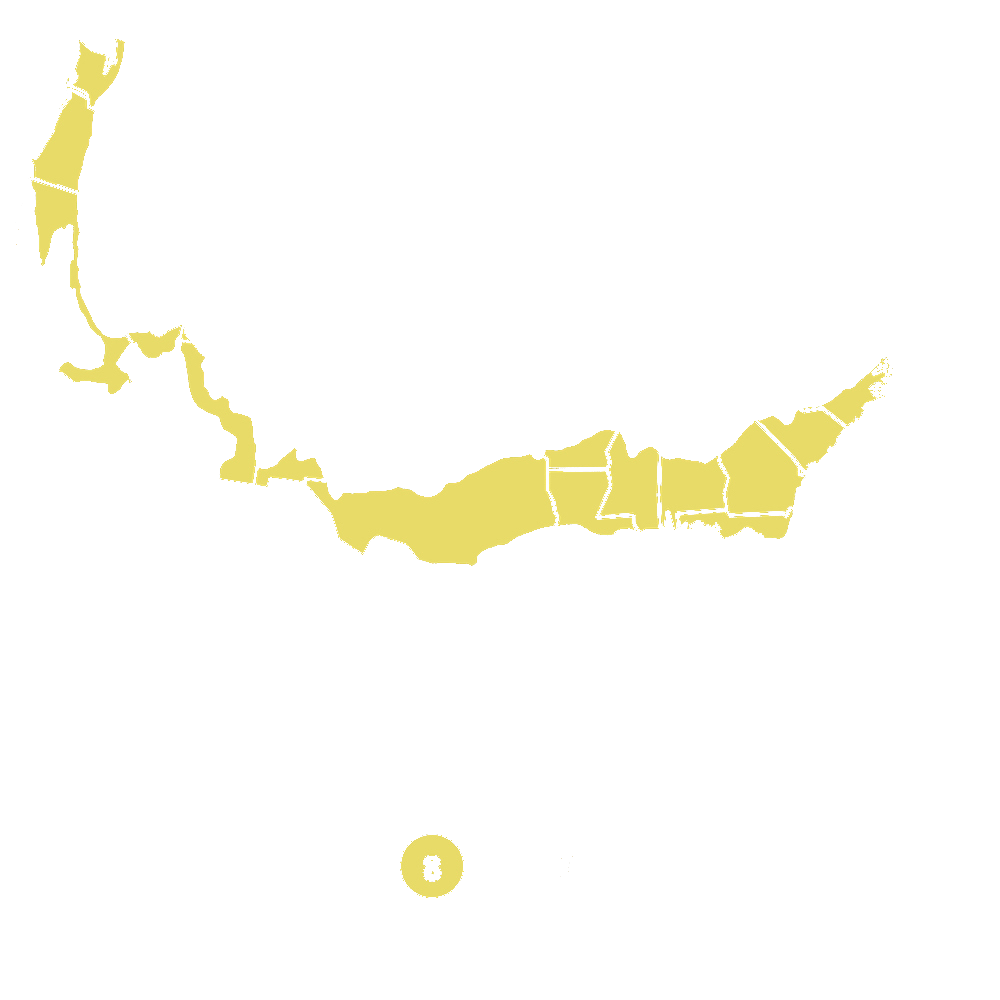
Pollination Info
Pollination Information for Autumn Gold Ginkgo
The Autumn Gold Ginkgo, also known as Ginkgo biloba 'Autumn Gold', is a male cultivar of the Ginkgo biloba tree. As a male cultivar, it does not produce any fruits or seeds, as it is non-fruit bearing.
Since the Autumn Gold Ginkgo is a male cultivar, it is mainly planted for its ornamental value, including its golden fall foliage and distinctive fan-shaped leaves. It is a great choice for urban landscaping and as a shade tree.
Due to its non-fruit bearing nature, the Autumn Gold Ginkgo does not require pollination or attract any pollinators. It is a low-maintenance tree that is resistant to pests and diseases, making it an excellent choice for gardens and public spaces.
FAQ
Autumn Gold Ginkgo (Ginkgo biloba 'Autumn Gold') FAQs
1. What is the Autumn Gold Ginkgo?
The Autumn Gold Ginkgo is a cultivar of the Ginkgo biloba tree known for its bright yellow fall foliage.
2. How big does the Autumn Gold Ginkgo typically grow?
The Autumn Gold Ginkgo can reach heights of 30-40 feet and a spread of 20-30 feet when fully mature.
3. What are the growing conditions required for the Autumn Gold Ginkgo?
The Autumn Gold Ginkgo thrives in well-drained soil and prefers full sun to partial shade. It is also tolerant of urban pollution.
4. When does the Autumn Gold Ginkgo typically change color in the fall?
The Autumn Gold Ginkgo's leaves usually turn a vibrant yellow color in late October to early November, depending on the climate.
5. How do I care for my Autumn Gold Ginkgo tree?
Water your Autumn Gold Ginkgo regularly, especially during dry periods. Prune as needed to maintain a desired shape and remove dead or damaged branches. Fertilize in spring with a balanced fertilizer.
6. Are there any pests or diseases that commonly affect the Autumn Gold Ginkgo?
The Autumn Gold Ginkgo is relatively pest and disease-resistant. However, it may occasionally be affected by leaf spot, anthracnose, or ginkgo scale. Proper care and maintenance can help prevent these issues.
7. Can I plant the Autumn Gold Ginkgo in a container?
While the Autumn Gold Ginkgo is typically planted in the ground, it can also be grown in a large container. Make sure the container has good drainage and provide regular watering and fertilization.
8. How often should I fertilize my Autumn Gold Ginkgo?
Fertilize your Autumn Gold Ginkgo tree once a year in spring with a balanced fertilizer. Avoid over-fertilizing, as this can lead to excessive growth and poor autumn coloration.
Planting & Care
Planting & Care for Autumn Gold Ginkgo (Ginkgo biloba 'Autumn Gold')
Planting:
- Choose a location with well-draining soil and full sun to partial shade.
- Dig a hole twice as wide as the root ball of the plant.
- Place the plant in the hole and backfill with soil, making sure the top of the root ball is level with the ground.
- Water thoroughly after planting.
Care:
- Water regularly, especially during the first year after planting.
- Prune as needed to maintain shape and remove any dead or damaged branches.
- Fertilize in early spring with a balanced fertilizer.
- Mulch around the base of the plant to retain moisture and suppress weeds.
- Protect from strong winds and extreme temperatures.
- Monitor for pests and diseases, and treat as needed.
Check Out These Verified Customer Reviews:
Customer Reviews
4.7 out of 5 based on 10 reviews
Thank you! Your review has been submitted.
Great customer service
Item arrived in great condition
Website was easy to navigate, found exactly what I needed.
Item has been added to your cart.

